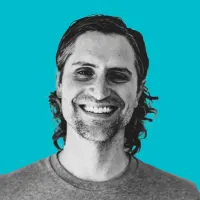This website uses cookies, belonging to us or third parties, to improve your experience, optimize performance and our services, understand your usage through analytics, and personalize advertising tailored to your interests on our site and third party sites. By continuing to use our site, you consent to such use of cookies. Please visit our Terms of Use and Privacy Policy where you can find out more about cookies and how to manage them.



In the context of Advent, the idea of extraordinary happiness addresses a significant change in our perception and experience of happiness. It sets itself apart from ordinary happiness, which is dependent on circumstances outside of one's control and is unstable. On the other hand, extraordinary happiness goes beyond these limitations and draws on a more profound sense of contentment and calm within us.
We are encouraged to look beyond everyday contentment and seek a connection as we enter the Christian tradition known as Advent. God's compassion invites us to acknowledge our distorted values and the futility of attempting to save ourselves. Instead, we are urged to surrender our control and offer this caring presence to this compassion.
The idea of extraordinary happiness pushes us to change our attention from what is happening outside of us to an inner quiet that is always there. It tells us to stop seeking fulfillment incessantly and to take comfort in the knowledge that we are already complete. We can access the limitless love and light that pervade our existence. By developing a mindfulness practice throughout Advent, we give ourselves the opportunity to experience this incredible happiness and expose ourselves to the prospect of a closer relationship with the divine, others, and ourselves.

In the context of Advent, the idea of extraordinary happiness addresses a significant change in our perception and experience of happiness. It sets itself apart from ordinary happiness, which is dependent on circumstances outside of one's control and is unstable. On the other hand, extraordinary happiness goes beyond these limitations and draws on a more profound sense of contentment and calm within us.
We are encouraged to look beyond everyday contentment and seek a connection as we enter the Christian tradition known as Advent. God's compassion invites us to acknowledge our distorted values and the futility of attempting to save ourselves. Instead, we are urged to surrender our control and offer this caring presence to this compassion.
The idea of extraordinary happiness pushes us to change our attention from what is happening outside of us to an inner quiet that is always there. It tells us to stop seeking fulfillment incessantly and to take comfort in the knowledge that we are already complete. We can access the limitless love and light that pervade our existence. By developing a mindfulness practice throughout Advent, we give ourselves the opportunity to experience this incredible happiness and expose ourselves to the prospect of a closer relationship with the divine, others, and ourselves.
You May Also Like

Thomas McConkie


